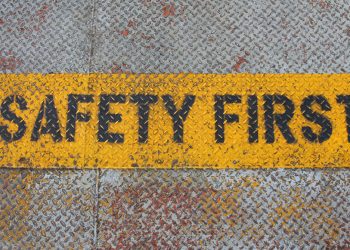The nation must make commitment to spill prevention and response preparedness
 Last week the Department of the Interior released its proposed program for offshore oil and gas leasing from 2012 to 2017. The proposed program calls for potential lease sales in the Gulf of Mexico as well as in the Beaufort and Chukchi Seas north and west of Alaska. This is an important time to examine the lessons we are still learning from the BP oil disaster in the Gulf of Mexico. The nation must make a genuine commitment to spill prevention and response preparedness, which was not the case when the BP oil blowout occurred.
Last week the Department of the Interior released its proposed program for offshore oil and gas leasing from 2012 to 2017. The proposed program calls for potential lease sales in the Gulf of Mexico as well as in the Beaufort and Chukchi Seas north and west of Alaska. This is an important time to examine the lessons we are still learning from the BP oil disaster in the Gulf of Mexico. The nation must make a genuine commitment to spill prevention and response preparedness, which was not the case when the BP oil blowout occurred.
If the United States is truly committed to protecting our ocean and the people who depend on ocean ecosystems, then we need to take action on six key lessons:
- Establishing baseline science before the federal government commits to offshore leases allows for better decisions about whether, where, when and how to drill. The necessary information includes identification of Important Ecological Areas and the Environmentally Sensitive Areas specified in the federal government’s “blueprint” for responding to oil spills and other hazardous substance releases.
- Spill prevention and response preparedness must be integrated into oil and gas leasing decision processes from the beginning. Best available spill prevention technology and engineering must be a condition of leasing. Before drilling starts, equipment and systems must be in operating condition, with redundant spill prevention measures and with onsite containment/removal capacity ready to deploy. Lease sales should stipulate the inclusion of funding for developing, reviewing, and implementing Area Contingency Plans that are adequate for worst case discharges.
- Spill preparedness and response capacity need to step up. History and recent experience show that response strategies have largely been based upon “table-top exercises” and minimal investments in actual capacity. Industry and government must demonstrate that equipment and trained personnel exist in-region sufficient to contain, control, and clean-up a worst-case discharge. The Coast Guard has a key role in oversight of an offshore spill, and it must be involved in reviewing and approving oil spill response plans and ensuring that they protect environmentally sensitive areas.
- Independent peer review is necessary. Third-party experts who have no conflicts of interest can help catch problems before they lead to disasters.
- Transparency is critical. The Department of the Interior, the National Oceanic and Atmospheric Administration, and the Coast Guard should meet with affected communities, tribes, and nonprofit organizations to explain how response plans will be implemented to protect the ecosystem from oil spills.
- Congress must commit the financial resources needed.
Protect a healthy future for the Gulf
These six lessons have profound importance for potential oil and gas leases in the Gulf of Mexico. We owe the people who live along the Gulf Coast a future that is free of oil disasters. A careful approach now can help ensure a healthy Gulf and resilient communities.
Put Arctic drilling plans on ice
Potential future lease sales in the Arctic Ocean immediately stumble over the first lesson: we need a better understanding of the Arctic Ocean ecosystem and an adequate baseline of science before deciding whether, where, when and how to allow drilling. The good news is that we already know a great deal about what we don’t know. In June, the U.S. Geological Survey released its report outlining significant gaps in science that must be filled in order to make no-regrets choices about oil and gas development in the Arctic.
And, as I know well from my experience with the Exxon Valdez oil disaster, a spill in remote, pristine waters will be devastating. No one yet has the capacity to clean up spilled oil in the Arctic’s icy waters; and the Arctic lacks the infrastructure to support effective spill response efforts. The government should not propose additional oil and gas lease sales in the Arctic — and should not allow exploratory drilling on existing leases — until we have protected the most environmentally sensitive areas and until oil companies have demonstrated that prevention and cleanup methods will be effective.
Decisions today affect future generations
There is no question that ocean energy will play a part as the United States continues to develop its energy resources. But if the oil and gas industry wants to drill in waters that belong to all of us, safety and environmental protection need to be top concerns. Responsible energy development protects environmental, human and economic health, and it is grounded in science that extends our understanding of the environment. The truth is, we’re not just talking about today’s energy and oil needs or about plans for the next five years. Decisions today will affect many generations of Americans. If we as a country embrace the lessons learned from hard experience, we can have both wise energy policy and a healthy ocean future.
Source: Huffington Post





























































